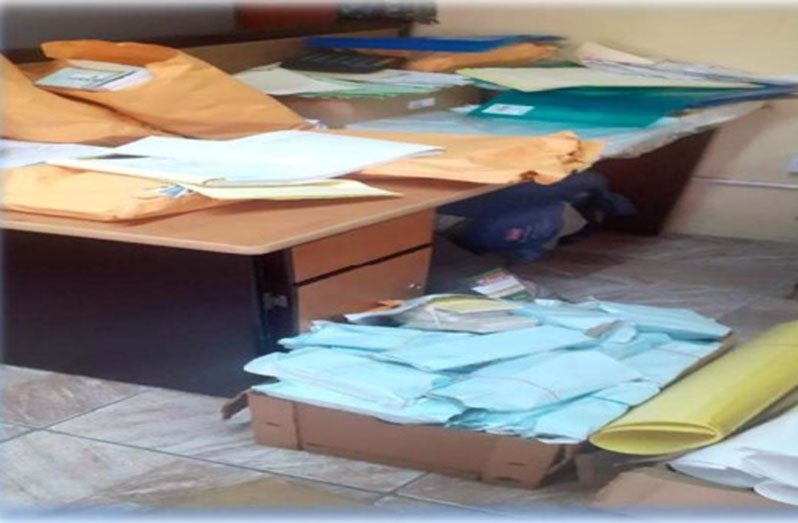–over 9,000 out of 11,000 qualified persons did not receive vouchers
–unused vouchers stored improperly, AG report shows
A performance audit of the former A Partnership for National Unity + Alliance For Change (APNU+AFC) government’s COVID-19 Pandemic Assistance Voucher Programme has revealed that more than 9,000 out of 11,000 qualified applicants did not receive vouchers.
“People who needed assistance were denied,” the Auditor General, Deodat Sharma, wrote in his report which examined the period, March to September, 2020.
The COVID-19 Pandemic Assistance Voucher Programme came into operation in April 2020, with the objective of providing economic relief to vulnerable households through the supply of hampers with fresh foods, dry ration, toiletries, and sanitation items.
The programme targeted single-parents, senior citizens, disabled persons, and persons who suffered a loss of income due to the pandemic.
Persons interested in benefitting from the programme were required to register online. Those without internet access were required to contact either the then Ministry of Social Protection or the Ministry of Communities to have their application forms completed.
Applicants were then shortlisted based on eligibility criteria approved by the Ministry of Finance. Eligible applicants’ information was verified and approved. Vouchers valued between $25,000 and $32,000 were dispatched by the Post Office.
The voucher included a flyer showing the list of items that could be obtained from approved supermarkets and shops.
And, as outlined by the Auditor General’s report, although many persons applied, they were unable to access the benefits they were duly entitled to.
The audit report revealed that the programme particularly excluded persons in the hinterland regions, who were instead promised hampers.
In addition to persons not benefitting from the programme, there were instances where vouchers which were not used, were left unsecured.
“Over 3,000 unused vouchers valued at least $90 million were unsecured on a desk. As a result, the vouchers could have been easily accessed and used to obtain items from suppliers,” the audit report stated.
This also proved that the information system was not fully protected, and lack of standard controls put the information system at risk.
“Therefore, unauthorised persons could have changed or deleted information. In addition, there were no yearly security checks and business continuity and disaster recovery plans prepared,” the audit report revealed.
Further, payments worth millions were not verified, and vouchers totalling $56 million were not checked before paying suppliers.
The action of officials, in this regard, could have resulted in overpayment to suppliers and eligible persons not given much-needed relief.
This was the case although the programme was funded entirely through the allocation of funds from the budget for the financial year 2020.



.jpg)









